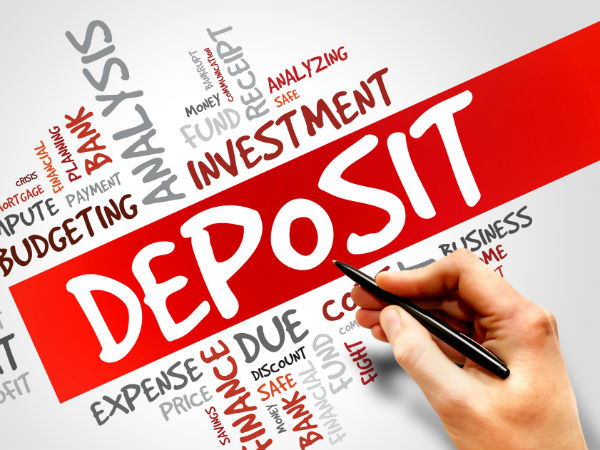Things You Should Know About FDs To Make Right Investment Decision And Also Save Tax
Fixed deposits are one of the country's safest and most popular investment alternatives. If you understand the product and make sensible decisions to maximize your investment benefits, FDs may provide a good return. Customers can deposit money in their FD products at almost all banks and financial institutions. FDs are also offered in a variety of tenure choices and characteristics. FDs with a 5-year lock period might also save you money on taxes.
Amid rising FD interest rate how do you know which is the best FD product for you? This one question brings a wide range of other questions including should opt for tax saving FD or the regular one. Let's start wth the first question!

Should you invest in one big FD or multiple smaller FDs?
Up to Rs 5 lakh deposits with the banks are insured by the Reserve Bank of India (RBI), and FD with Post office is also secure as the post office is backed by the Government of India. When investing in an FD, you should avoid putting more than Rs 5 lakh in a single bank to eliminate the default risk.
The preferable option is to divide your money into many FDs, ideally in various banks, with a total deposit (principal + interest) in each bank not exceeding Rs 5 lakh. Another advantage of having many FDs is that you may liquidate one or two of them to satisfy an immediate need without disrupting your other FD assets.
In an exceptional case or any financial crisis, if you have invested the entire fund in a single FD, you may face liquidating decision and need to prematurely withdraw the total investment, which will impact your interest.

What is the best term for a fixed-income investment?
Banks, Post Offices, and Financial Institutions such as NBFCs typically provide FDs with terms ranging from seven days to ten years. Some banks also provide FDs with terms as long as 20 years. Ideally, you should invest in a fixed-rate deposit with a term that corresponds to your financial objectives.
You can choose the right FD tenure based on your short- and long-term objectives. To reach your financial goals, you should also choose FDs that give the best rate of interest. When you expect FD interest rates to rise, you can invest in many FDs with varying maturities to construct FD laddering and profit from the long-term averaging of FD interest rates.

Should you invest in Tax Saving FDs?
Tax saving FD is a Saving instrument is which tax deduction allowed under Section 80C of the Income Tax Act, 1961. An investor can claim a deduction of up to Rs 1.5 lakh per financial year by investing in these FDs.
A tax-saving FD has a 5-year lock-in period and may only be liquidated after that. FDs offers guaranteed returns and are low-risk investments when compared to stocks. This characteristic is one of the reasons why they are one of the most popular tax-saving tools among taxpayers.
Tax-saving fixed deposits also pose an extremely low risk when compared with certain other tax-saving investments such as ELSS (Equity-Linked Saving Scheme). This is due to the fact that FDs lack any market-linked components that might influence the rate at which your investment increases. Throughout the term of the FD, the interest rate given by banks stays constant.
If your goal is to save tax and guaranteed returns with zero risk you should opt to invest in Tax saving 5 years FDs.

Corporate FD vs. Bank FD: Where to invest?
If you want to earn a greater interest rate on your FDs, consider investing in corporate fixed deposits by NBFCs.
These deposits often have terms ranging from six months to five years, in addition, they often pay a greater interest rate than bank FDs, but they also come with a larger risk compared to Bank FDs. Also, Corporate deposits are not protected by the RBI. In the worst-case scenario, if the corporation where your money is invested as FD defaults on payments you might lose all your savings.
Some banks allow investors to partially liquidate FDs while keeping the remaining amount invested. While the corporate deposits do not allow for partial withdrawals. As a result, if you have the necessary risk-taking capacity, you may want to consider investing in top-rated CDs after doing a comprehensive risk assessment to obtain significantly greater returns.
If you are a risk-averse investor, you should stick to FDs from reputable institutions.

Bottom Line
FDs are not just a safe and guaranteed deposit scheme. It also comes with various other benefits such as tax savings (5-Year FD). You may also explore an overdraft (OD) facility against your FD to avoid penalty on premature withdrawals to meet your short-term requirements instead of breaking the FD after reading the applicable terms and conditions.
Investors in fixed-income securities should keep in mind that FD returns are fully taxed at the investor's marginal tax rate. As a result, while making a choice, always consider the post-tax FD returns. Choose FD that fulfils your personal finance requirements.































